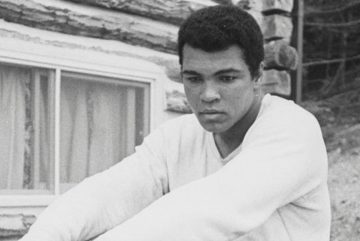Rachel Leah in Salon:
 The opening frame of “What’s My Name” shows Ali explaining that should his story ever be told, he wants it done in full. So, there are no talking heads or narration, because who better to tell such a remarkable, revolutionary story than Muhammad Ali himself? His interviews and words guide us through his life, from early childhood until his final days, as he endures the bodily constraints of Parkinson’s disease. Ali’s famous, rhythmic one-liners, like “float like a butterfly, sting like a bee,” are accompanied by his critical analysis about race, white supremacy and his politics, which are global.
The opening frame of “What’s My Name” shows Ali explaining that should his story ever be told, he wants it done in full. So, there are no talking heads or narration, because who better to tell such a remarkable, revolutionary story than Muhammad Ali himself? His interviews and words guide us through his life, from early childhood until his final days, as he endures the bodily constraints of Parkinson’s disease. Ali’s famous, rhythmic one-liners, like “float like a butterfly, sting like a bee,” are accompanied by his critical analysis about race, white supremacy and his politics, which are global.
“What’s My Name” doesn’t just show the extreme bravery of Ali’s activism, as he spoke expertly and passionately about the plight of black people in America and the perils of U.S. empire, but it also focuses on the immense sacrifices he made — how Ali put his life, safety and career on the line for his convictions and was punished immensely for it — marginalized and dehumanized by his own country. Ali is universally celebrated today, but like many black radical activists, he was undercut during the zenith of his life.
More here.
